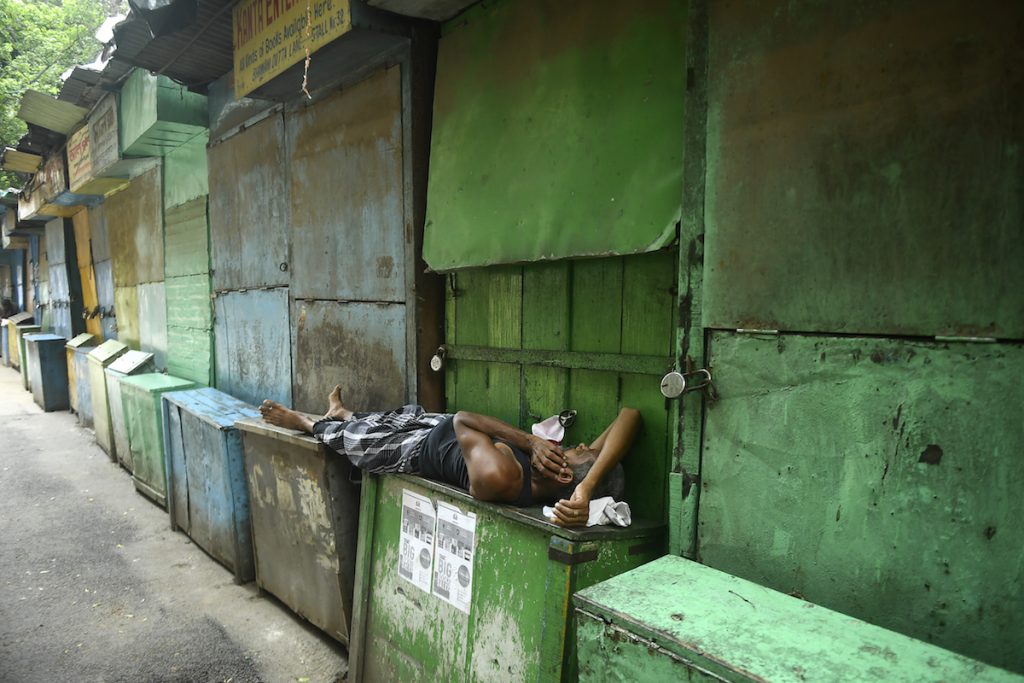Since he lost his job as a laborer Darshan Kumar, 29, has spent most of his time in his modest home in the northern Indian state of northern Uttar Pradesh.
The New Delhi tile making factory where he earnt 500 rupees (US$ 7) a day was shut on March 24 when the country went into a COVID-19 induced lockdown.
Kumar was among the millions of migrant workers who, with few other transport options, then walked along highways back to their home villages.
“I saw scores of others dying due to dehydration and hunger on my way to the village. It took me three days to reach here and since then I have earned nothing,” said Kumar who has three children under the age of seven,
As India’s economy continues to be pummeled by the COVID-19 crisis, Kumar is not optimistic about finding another job.
“As a Christian, it is extremely difficult to find some daily wage work in my own village,” Kumar said
“The local populace is dominated with Hindus who view Christians with extreme prejudice. We are not being helped or provided with some work. This is the reality,” he said.
The 20 or so local Christians in his village have laid low ever since an incident in 2017 when a hard-line Hindu mob barged into a house where Kumar, his family and several other Protestants were attending a prayer service.
Kumar and another man were roughed up by the mob who threatened the Christians of dire consequences if they held anymore prayer services.
“When this is the situation, you can only imagine the ordeal we are facing. In cities, no one asks the religion but here in the villages, it forms the core of everything. This is the reason that I have no work for the past five months,” Kumar said.
India’s labor class — comprising of Dalits, Christians and other depressed castes — has been walloped by the country’s plummeting economy and, as yet, there is no light at the end of the tunnel.

A series of bad decisions, including the sudden lockdown imposed across India, have been blamed. It is being predicted that more workers will suffer with construction, mining and automobile industries to be further adversely affected by the slowdown. Recent reports reveal that India’s GDP in the first quarter for the year declined by 23.9 per cent.
Mathew Thomas, a Mumbai-based economist, told LiCAS.news that the economic crisis will badly hit minorities the most including the Muslims and Christians who form 14 and 2.3 percent of country’s total population of 1.2 billion.
“Amid the surge in hatred against Muslims and Christians, it is difficult to hope that these two communities will not suffer the most,” Thomas said.
Thomas cited the last year government data according to which unemployed Christians stood at 6.9 percent in rural communities, while the percentage was 5.7 for Hindus and 6.7 for Muslims.
“The point is that some 60 percent of Indian Christians come from socially and economically poor Dalit and tribal communities and mostly live in the villages of northern India. The economic slowdown is indeed going to hit them hard,” said the Catholic economist.
Despite the lockdown India the virus continues to spread in India with a national tally of more than 4.2 million cases. The virus has killed more than 70,000 Indians.
Sunita Devi, a Pentecostal Christian woman who owns a tailoring shop in India’s Punjab state, has been finding it hard to survive even when she has a shop at a prime location in her hamlet. Most local villagers refuse her services because of her faith.
“The reason that I am not a Hindu has left me starving. There was a smear campaign launched against me a year back in the village that we Christians receive foreign funding to convert Hindus to Christianity,” Devi said.
“Since then, people have boycotted me, and it is hard to earn even 2,000 rupees (300 US$) a month,” she said.
Her husband who used to work in a paper binding factory in India’s Haryana state has returned home because the lockdown left him jobless. “We have four children and my husband is presently unemployed. Tell us what we will do now?” Sunita asked.
Michael Philip, a Bangalore-based Catholic lawyer, said that Christians in India are facing double discrimination; one in societal acceptance and another in terms of discrimination in jobs. “I have contested cases in court which were related to poor Christians thrown out of their jobs when their employer comes to know about their faith,” Philip said.
“On the other hand, their places of worship are targeted by mobs with impunity. Joblessness in the country will, with coming times, surge to unimaginable levels. It is feared that the poor Christians will suffer the most,” Philip said.
Conditions faced by Christians in India has only worsened over the past several years, say rights groups. Monitoring group Open Doors says that India is the 10th most dangerous country in the world for Christians to live in while a 2019 report by the US Commission on International Religious Freedom accused the country’s government of encouraging violence against Christians and Muslims.